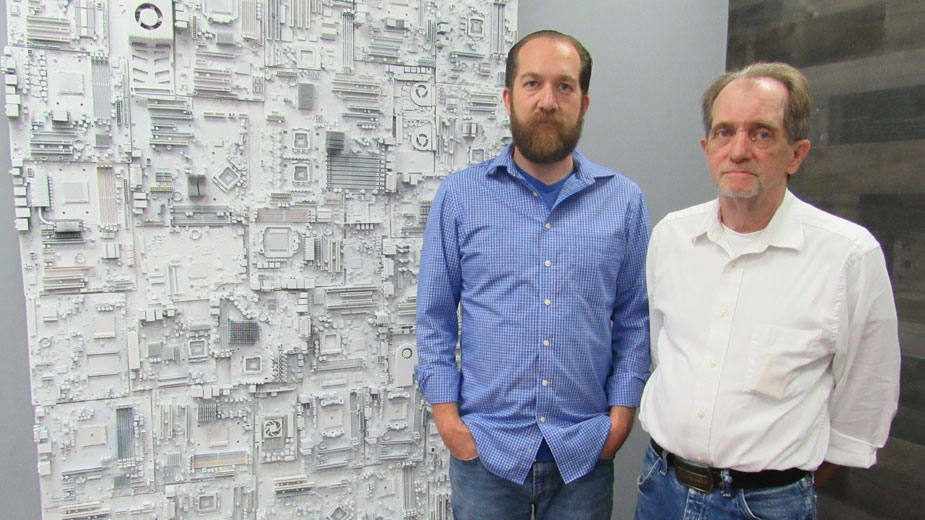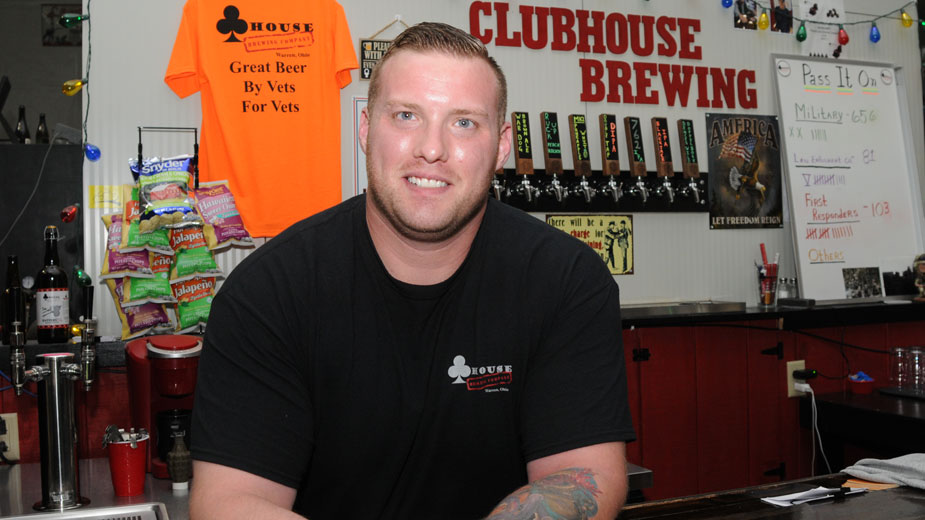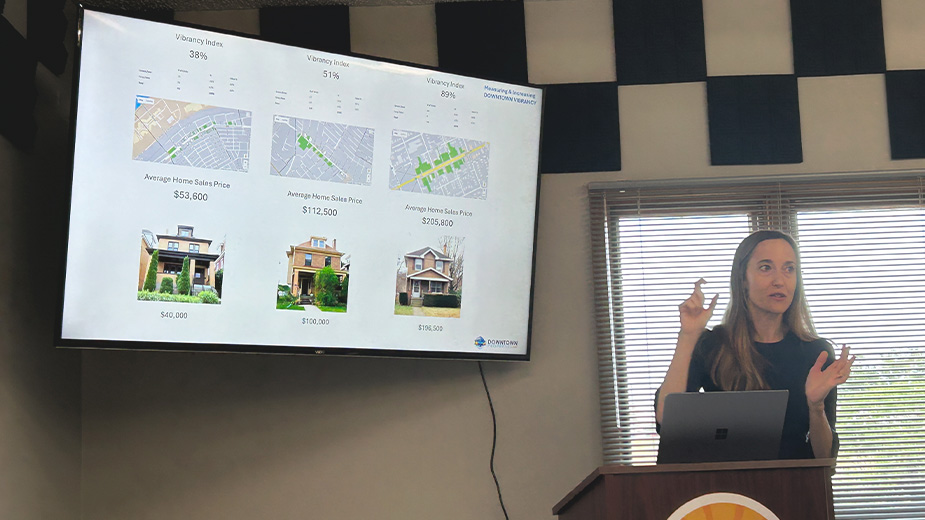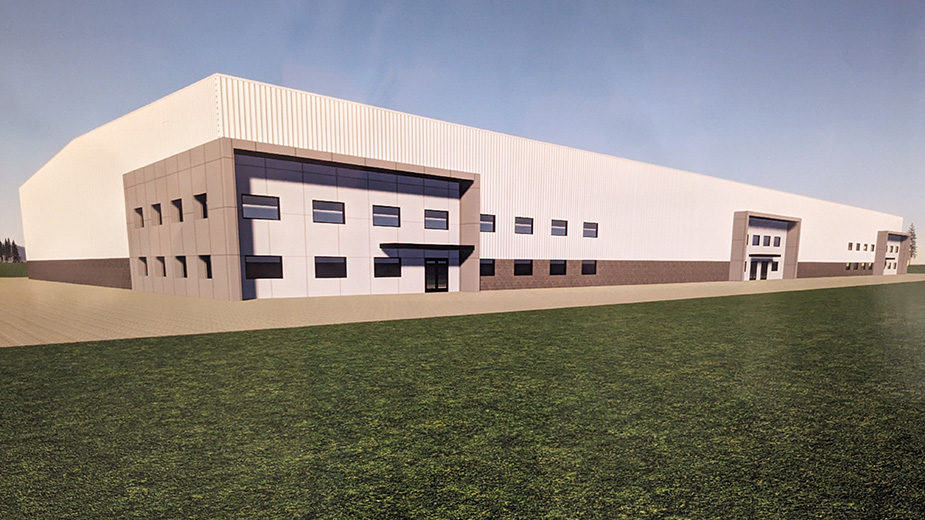Entrepreneurship Calls Veterans to Duty
YOUNGSTOWN, Ohio — Becoming a small-business owner was never on Zach Dean’s radar. The four-year Army veteran had planned to pursue a military career, but an injury while deployed in Afghanistan changed that plan. Within a few months, he received his discharge.
“Guys who are ready to get out and ready to move on will have an easier time transitioning versus people who are out not of their own volition,” Dean says. “For me, it was me accepting that there was nothing I was going to do that was going to change it. That helped me shift my focus to getting into something and doing something with my life outside the Army, which helped out tremendously.”
That “something” was brewing beer. For 11 years, Dean brewed beer with his dad, who learned the process while he was stationed in Germany during his own time in the Army.
The younger Dean went to school and earned a master’s in accounting from Case Western Reserve University, then mapped out the beginnings of Clubhouse Brewing Co. in Warren, which opened on Black Friday in 2017.
Being a small-business owner has some parallels to running operations in the Army, such as planning, logistics and manpower, Dean says. Although the specific skills he learned as an artillery officer – running a gun battery or calling in fire support – didn’t transfer at all, “the managerial and operational component of my job in the Army transitioned over nicely,” he says.
“With two deployments under my belt, you learn how to operate in a high-stress environment,” he says. “The stresses you see in running your own business aren’t as crippling as they are to someone who’s never worked in a high-stress environment.”
Working under stress, comfort in assuming a leadership role and a strong attention to detail are characteristics that Dean and other veterans say helped them make the transition to the world of entrepreneurship.
In its 2012 Survey of Business Owners – the most recent data available – the U.S. Census Bureau reports there are more than 2.5 million veteran-owned businesses in the United States, 92,331 of which are in Ohio.
Veteran-owned businesses play an important role in the community, says Chuck Booth, president of Don Booth Carpet One Floor & Home, North Jackson. Booth and his father, Don, are both veterans – Chuck served in the Marines from 1972 to 1974, and Don in the Navy from 1946 to 1948.
“The important role that we play, being veterans ourselves, is showing the respect we have for people serving our country,” Booth says. “And a lot of times we’re able to serve our country even though we’re not in uniform.
That show of respect includes employing veterans and encouraging all employees to get involved in the community. In addition to serving on boards in the area, the Booths went to New York a few years ago to work with the Stephen Siller Tunnel to Towers Foundation to build smart homes for veterans and first-responders who have sustained injuries. They also work with Wounded Warriors, Booth says.
“We’re still serving. It’s in a different way,” he says.
For Dorrin Mace, owner of Pine Knoll Clock Shop in Mercer, Pa., that call to service led him to rescue the carillon from Fort Custer National Cemetery in Augusta, Mich. World War I, World War II and Korean War veterans gave the carillon to the cemetery, where it played “Taps” for the veterans interred there, he says. It was decommissioned after a lightning strike.
“They were going to throw it away and I thought that was quite a sacrilege,” Mace says.
Mace, an Air Force veteran on active duty from 1984 to 1988 and in the reserves for 16 years, made the six-hour drive to pick up the carillon and brought it back to his shop at Pine Knoll. With the help of a friend who is an electrical engineer, they got it working again. Now the 700-pound carillon is kept at the clock shop where it’s fully operational.
Pine Knoll opened in 2001 and Mace works about 90 hours a week repairing clocks and building his own line of clocks using reclaimed materials, he says. He’s working on expanding into a second building for his line of specialty clocks, and will likely need to hire someone – possibly another veteran – to help with the workload.
Being a veteran and expanding his small business means a lot to Mace, he says.
“The small businesses built America and the veterans are the ones who keep America safe,” he says. “That’s how we were founded and that’s how it is.”
Father and son veterans Brian and David Stanley are looking to expand their company as well. For the last nine years, they have owned and operated Cyber Express in Boardman. Brian is an Army veteran while David served six years in the Navy, retiring in 2005.

After David Stanley left the Navy, he worked several different jobs, eventually getting into the computer industry, he says. He worked at Cyber Express for a few years until the owner, an Air Force veteran himself, asked Stanley if he wanted to buy the business. He discussed the opportunity with his dad, who was retired from working on the assembly line at the General Motors Lordstown Complex.
“A few years after that, we purchased the business,” David Stanley says.
The computer-repair company primarily serves residential customers, he says. Services are provided remotely to customers throughout the United States, Canada and South America.
Serving in the military instilled in him initiative and a keen attention to detail, he says, which are skills that lend themselves to his line of work. Whether identifying where 30 different screws go for a particular component or diagnosing an issue for a customer, Stanley plays close attention to each detail to ensure a job is done correctly, he says.
“I need to know step-by-step what you did and how you got to that conclusion so I can recreate that problem if it happens again,” he says.
The Stanleys look to expand to a second location this year by acquiring a company in Cuyahoga Falls. The company will hire two or three for the Boardman location and another one or two at the second location, he says.
“And we’re going to look at all veterans before we look at anyone else,” he says. “All veterans should be hard chargers. They should be the guys that you can look to for advice or look up to who can lead the way. We’ve all been in that spot before.”
Clubhouse Brewing’s Dean looks to expand this year as well. Nearly two years into the business, he hopes to open a second location by year’s end in Ashtabula Harbor, which will be operated by a retired Army first sergeant, he says.
Dean also looks to start a nonprofit organization that helps veterans trying to start their own companies by providing mentorship on business planning, finances, projections and demographics work, he says.
Since starting Clubhouse Brewing, Dean has donated to Veterans’ Outreach in Youngstown, which provides outreach services to veterans in need. Last year, the company donated about $2,500 to the nonprofit.
“I wanted to run my own company, but I also wanted to do something to give back,” Dean says. “I love what I’m doing now. I still miss the Army every day, but I’m happy with where I’m at and I’m happy that we’re helping other veterans who are maybe in the same position and are making a difference.”
Pictured above: After leaving the U.S. Army, Zach Dean opened Clubhouse Brewing Co. and looks to expand by year’s end.
Copyright 2024 The Business Journal, Youngstown, Ohio.



